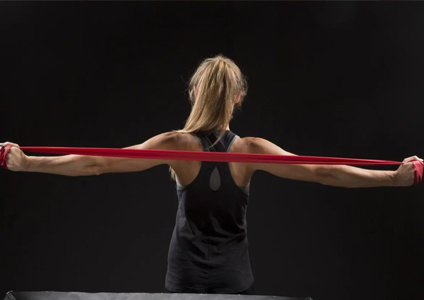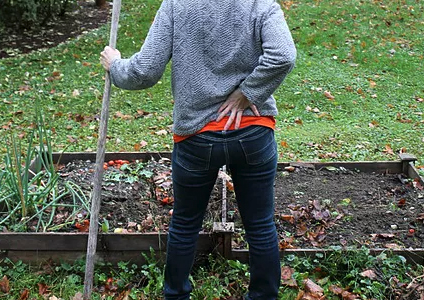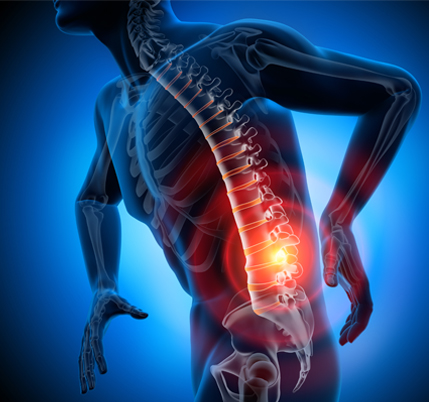
How Physical Therapy Can Help Relieve Sciatica Pain
October 31, 2024
Spring Time Gardening and Yard Work Related Injuries
May 12, 2025The Important Role of Nutrition in Your Recovery:
A Physical Therapist Assistant’s Perspective
As a Physical Therapist Assistant (PTA) in an outpatient orthopedic clinic, I work closely with patients who are recovering from injuries or surgeries. While much of our work focuses on hands-on therapy and exercises, there’s something equally important that often gets overlooked—nutrition. What you eat can play a major role in how quickly and effectively you recover, how well you tolerate therapy, and how soon you can return to your normal activities. In this blog, I’ll explain why nutrition matters for healing, how it impacts your physical therapy progress, and the risks of not eating the right foods or staying properly hydrated.
How Nutrition Helps Your Body Heal
After an injury or surgery, your body works hard to repair itself. To do this, it needs the right “tools”—and those tools come from the foods you eat. Whether you’re trying to rebuild muscle, heal bone tissue, or reduce swelling, proper nutrition supports all these processes.
Here’s a breakdown of how different nutrients can help:
1. Protein: The Building Block for Repair Protein is essential for healing. After surgery or an injury, your body needs extra protein to repair muscles, ligaments, and other tissues. Think of protein as the “bricks” that help rebuild your body. If you’re not eating enough protein, your healing might take longer, and you may not regain strength and movement as quickly. Good sources of protein include lean meats, fish, eggs, beans, and nuts.
2. Healthy Fats: Reducing Inflammation Some fats—specifically omega-3 fatty acids—help reduce inflammation, which can speed up recovery. When you’re recovering from an injury, inflammation is your body’s natural response. But too much inflammation can delay healing. Omega-3s, found in fatty fish (like salmon), nuts, and seeds, help control this inflammation. Avoiding too many unhealthy fats (like those in processed or fried foods) is equally important, as they can make inflammation worse.
3. Vitamins and Minerals: Fuel for Healing Vitamins and minerals are vital to the healing process. For example, vitamin C helps create collagen, which is essential for repairing tissues, and zinc helps with cell growth and immune function. For bone healing (especially if you have a fracture), nutrients like calcium and vitamin D are necessary. You can find calcium in dairy products and leafy greens, and vitamin D from sunlight and fortified foods.
4. Water: Vital for Muscle and Joint Function It’s easy to forget, but hydration is just as important as food when it comes to recovery. Muscles are mostly water, and dehydration can cause cramping, fatigue, and even slow down the healing process. Staying hydrated helps your muscles function better and helps transport nutrients to your healing tissues. Make sure you drink plenty of water throughout the day—especially before and after physical therapy sessions.
What Happens if You Don’t Eat Properly During Recovery?
Not eating enough or eating the wrong foods can slow down your recovery. Here are some of the risks:
1. Slower Healing Without the right nutrients, your body doesn’t have the necessary resources to repair damaged tissues. If you’re not getting enough protein, vitamins, or minerals, healing can take longer, and you may experience prolonged pain or limited mobility. This can make physical therapy less effective and extend the time it takes to get back to your usual activities.
2. Less Energy for Therapy Physical therapy can be tough work, and your body needs energy to keep up with the exercises. If you’re not fueling your body properly with the right foods, you might feel tired, weak, or unable to complete your therapy exercises. This can slow down your progress and make recovery more difficult.
3. Increased Inflammation Inflammation is a natural part of the healing process, but if it becomes too much, it can slow healing and increase pain. A diet high in processed foods, sugars, and unhealthy fats can actually make inflammation worse. This can make it harder to move, stretch, and regain full function, even with physical therapy.
4. Muscle Loss When you’re not eating enough calories or protein, your body may start breaking down muscle tissue. This is especially concerning if you’ve had surgery or a serious injury. If muscle mass is lost, it can take even longer to rebuild strength and mobility during therapy. This can also make it harder to regain normal function and strength after your injury or surgery.
How to Support Your Recovery with Proper Nutrition
You don’t need to be a nutrition expert to make choices that support your healing. Here are some simple tips to help you get the right nutrition during your recovery:
1. Eat Plenty of Protein: Focus on including good sources of protein like chicken, fish, eggs, beans, and tofu in every meal. Protein helps rebuild your muscles and tissues, which is crucial during recovery.
2. Choose Anti-Inflammatory Foods: Include foods rich in omega-3 fatty acids, like fatty fish (salmon, tuna), walnuts, and flaxseeds. Colorful fruits and vegetables also help fight inflammation and promote healing. The more variety of vegetables you can get into your diet, the better!
3. Stay Hydrated: Drinking water is essential for muscle function and nutrient transport. Make sure to drink plenty of water throughout the day, especially before and after physical therapy sessions. This can make your workouts easier and more effective.
4. Avoid Processed Foods: Try to limit foods that are high in refined sugars and unhealthy fats. These can increase inflammation, slow down your healing, and make you feel sluggish.
5. Focus on Bone Health: If you’re recovering from a bone injury or surgery, ensure you’re getting enough calciumand vitamin D. You can find calcium in dairy products, leafy greens, and fortified foods. Vitamin D is important for bone strength, so try to get some sunlight or consume fortified foods.
In Conclusion: Nutrition and Physical Therapy Go Hand in Hand
As a PTA, my goal is to help you recover as quickly and effectively as possible. Proper nutrition plays a huge part in that process. By focusing on the right foods and staying hydrated, you can support your body’s natural healing abilities, improve your exercise performance, and speed up your recovery.
Remember, nutrition isn’t just about feeling good—it’s about healing and getting stronger. Combining the right diet with your physical therapy will help you get back to doing the things you love, faster and with more strength. –





